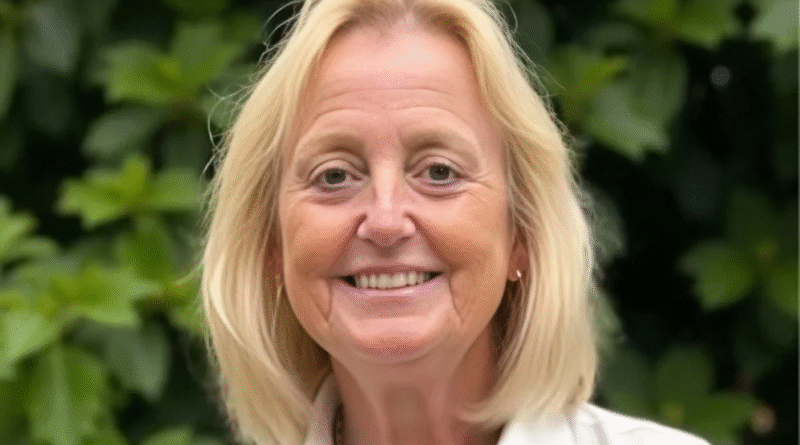Lung Cancer Patients Struggle with Information: 40% Affected
The stethoscope was invented by Dr. René Laennec in 1816, introducing a completely new way to observe and understand lung diseases. His simple but revolutionary invention enabled doctors to listen more accurately to respiratory sounds, improving the diagnosis of various lung conditions, while also allowing patients to receive clearer and more precise information about their health.
Several decades later, in 1912, Isaac Adler published the first literature review on lung cancer, documenting 374 known cases recorded in several European registries over the preceding 50 years, highlighting the growing recognition of this disease and the need for systematic study.
Recognizing the importance of collaboration and the growing public health concern surrounding lung cancer, in 1972, Drs. David T. Carr, Oleg S. Selawry, Lawrence Broder, Clifton Mountain, and George Higgins began establishing an international, multidisciplinary organization. By 1974, they launched the International Association for the Study of Lung Cancer (IASLC) at their first formal meeting in Florence, Italy, gathering over 250 founding members from around the world.
Today, communication with patients and the delivery of timely, understandable information remain especially important, as a prompt understanding of symptoms, treatment options, and risks significantly affects care decisions and treatment outcomes. Despite advanced technologies and the availability of new therapies, many patients still feel they lack clear and accessible information. This is exactly what Debra Montague, the President of Lung Cancer Europe and the first patient ever to hold this role, emphasized at the International Association for the Study of Lung Cancer 2025 World Conference on Lung Cancer (WCLC). Lung Cancer Europe (LuCE) is a nonprofit, patient-led organization that unites and supports lung cancer advocacy groups throughout Europe.
Critical communication barriers affecting access to information
In early September 2025, Barcelona hosted the IASLC World Conference on Lung Cancer, held from September 6 to 9, featuring lectures, panels, and discussions with experts from around the world. At the conference, the research presented by Debra Montague highlighted significant communication barriers that affect access to information, understanding, and shared decision-making among lung cancer patients and caregivers across Europe.
The online survey was designed, developed, and distributed over six weeks in twenty languages, focusing on three key themes: (i) information, (ii) knowledge, and (iii) involvement in decision-making. A survey was considered valid if participants completed at least the first two series of questions. In total, 1,432 people with lung cancer and 608 caregivers from 34 countries within the WHO European Region participated in the study.
In the first theme, “General knowledge about lung cancer,” 65% of participants reported delaying seeking medical advice after experiencing symptoms, primarily because they did not recognize these symptoms as related to lung cancer. Additionally, 4 in 10 participants attributed their symptoms to other health conditions. Furthermore, 22% of respondents were unfamiliar with biomarkers, and 24% indicated that they did not fully understand the disease prognosis.
The second theme, “Access to information,” revealed that 40% of participants did not receive sufficient information, and 29% stated that they did not fully understand the information provided. Key information barriers included difficulties processing information (39%), insufficient details (33%), and unclear explanations (33%). Overall, 89% reported lacking some form of support or information. Limited consultation time (51%), poor communication skills (42%), and the use of complex information (25%) were commonly cited as factors that hinder effective communication with healthcare professionals.
In the third theme, “Shared decision-making,” 49% of participants reported being highly involved in decision-making, yet only 56% felt that their opinions were considered. Moreover, just 6 in 10 participants felt that their treatment and care plans aligned with their personal preferences, while 40% did not view their involvement in decision-making positively. Complex information (49%) was identified as the main obstacle to meaningful participation, followed by poor communication with the healthcare team (38%).
We Need to Talk Differently About Lung Cancer
How can the media help?
Debra Montague: Our findings show that 65% of participants delayed seeking medical advice after symptoms, with the most common reason being not recognising them as signs of lung cancer. Symptoms can be vague and not always respiratory. Stigma also shapes ideas of who gets lung cancer. Media can help by using clear language, challenging stereotypes, and encouraging people to see a doctor if something feels wrong.
How can people be supported to overcome fear?
Debra Montague: Fear is a real barrier. Some hope symptoms will disappear. Others are frightened of what a diagnosis will mean. People need reassurance that asking for medical advice early can help, and support through clear, empathetic communication. Sharing lived experience helps people feel less alone and more ready to act.
What changes are needed in the healthcare system?
Debra Montague: Staffing is a challenge, but communication is just as critical. Four in ten told us they did not get enough information, and almost one in three did not fully understand what they were told. We need a culture where shared decision-making is standard, every case is discussed in a multidisciplinary team, and information is given in plain language that people can use.
What are the most urgent changes?
Debra Montague: Clearer communication that replaces jargon. Real shared decision making. Almost everyone wants their views included, yet fewer than half feel meaningfully involved. Equal access across Europe. New tests and medicines only matter if people can get them. In some countries, the wait is more than 600 days.
Gaps in public knowledge about lung cancer
An earlier report by Lung Cancer Europe revealed major gaps in public knowledge about lung cancer, along with persistent challenges in accessing clear information and engaging patients in shared decision-making. The reports play a key role in Lung Cancer Europe’s mission, highlighting the experiences and challenges faced by people living with lung cancer across the continent. As part of this work, an online survey was completed by people affected by lung cancer across the WHO European Region. The survey ran from May 24 to July 7, 2024, and included responses from 1,078 participants with oncogene-driven lung cancers in Europe.
But instead of numbers, in this case, we’ll share what they have to say.



Hear the Patient
The treatment pathway is shaped by observation, knowledge, and communication. Despite advances in medicine, communication with patients remains a key challenge. According to EU data, lung cancer accounts for around one-fifth of all cancer deaths, with almost 226,500 people losing their lives to the disease in 2021 alone.
A study by Lung Cancer Europe, presented by Debra Montague at the IASLC World Conference on Lung Cancer 2025, revealed gaps. Fear, stigma, and unclear communication further hinder timely care and shared decision-making. Even when patients are involved in their care, only a small proportion feel that their opinions are fully considered.
These findings highlight a key lesson: just as the stethoscope once allowed doctors to “listen” to patients’ lungs, today we must actively listen to patients themselves.
Image: Debra Montague/LinkedIn


